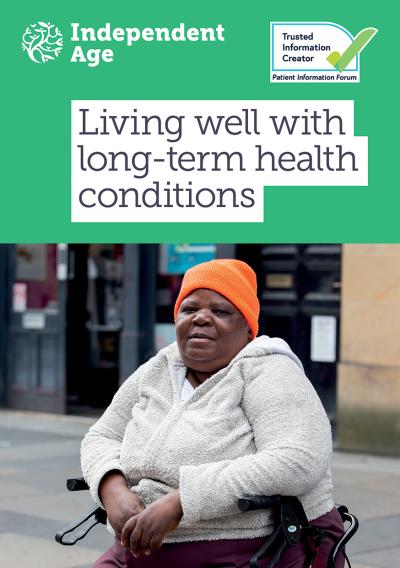Related publications

Technology can help you stay active and healthy, manage long-term conditions, book appointments and order prescriptions. This page covers health apps, NHS services and other ways you can manage your health online.
You can download applications (apps) to your smartphone or tablet to help manage your health and wellbeing.
Health apps can help you to:
You can find apps for specific conditions – like dementia, diabetes and cancer – and for general healthy living.
Health apps cannot diagnose you. They'll only be able to help with day-to-day management of your health and wellbeing, or existing conditions. If you're worried about your health, talk to your doctor.
Make sure you use apps that have reliable information, such as those on the NHS website. You could also visit Digital Unite for their recommended health apps.
To use any health app, you'll usually need to:
Make sure the health app is secure and keeps your information safe, for example, by reading their privacy policy. When you set passwords, remember to make them strong and keep them private too. For more information, see Staying safe online.
For instructions on how to use the app, it's best to check the website of the specific app you download.
The NHS runs its own app which lets you access NHS services through your smartphone or tablet, or on a web browser. You may be able to use it to:
Some of these services depend on your GP or hospital enabling them, so would only appear in the NHS app if they have done so. You may wish to talk to them if there are certain app services you'd like to use.
Visit the NHS website for a full list of what the NHS app offers.
To get started on the NHS app, you'll need to:
Once you've set up the app, you should be able to access available services. Visit the NHS website for guidance on using their app.
If you need to use the NHS app on behalf of someone else, you'll both need to be registered at the same GP. Your GP will need to set up proxy access for you, so you can link your NHS app profiles. Speak to your GP surgery or see the NHS website for more on linked profiles.
Many GP surgeries now let you book appointments online. For example, they may use the NHS app or another app to let you book appointments. Or they may use an online system which you log into through a web browser. Talk to your GP surgery to find out what they provide.
If you need to see a specialist, you may be referred to them through the NHS e-referral service. This allows you to choose from a shortlist of hospitals that provide the treatment you need and manage your appointment booking easily.
Your GP will give you an appointment request letter. You can then book your appointment online, by phone or through the NHS app. Your GP can also book it while you're at the surgery. See the NHS website for more information on specialist referrals.
Your GP surgery may now offer online and video consultations for some appointments, rather than face to face. This means you speak to your GP on the phone or have a video call with them. Find out more about GP online consultations.
During the coronavirus pandemic, you'll only be asked to go into the surgery if you really need to. You may be offered a phone or video consultation instead. Read more about getting medical help during coronavirus.
Most prescriptions you get on the NHS are now processed electronically. You can either:
If you are taking medication on a regular basis, you will be able to order further medication when you are close to running out. Visit the NHS website for more on electronic prescriptions.
You may be able to use the NHS app, the NHS repeat prescription ordering service or some other apps to view and order your repeat prescription.
If you choose an app or website to use, most will ask you to create an account with a username and password. For more information, ask your GP or pharmacist, or visit the NHS website to learn how to order repeat prescriptions online.
You can buy medicines online but be careful if you’re considering it. Speak to your GP or other health professionals first.
If you do decide to buy, make sure the seller is based in the UK and registered with the General Pharmaceutical Council.
You should also check the qualifications of anyone who advertises their services as a therapist or medical practitioner. They should be registered in the UK.
Whether you're buying medication or services, make sure you follow general tips to stay safe and shop securely. See our pages on internet safety and shopping online.
There’s a wealth of medical information on the internet, but since anyone can post online, you need to separate fact from opinion.
To make sure you can trust the information you’re reading, you can:
For more advice, read How to find reliable health information online.
If you read something online that makes you think you may have a certain condition, talk to your GP before you take any action.
If you have a long-term health condition, you may be able to use technology to help you manage your care. Telehealth includes specialist devices, apps or even text message systems which can monitor your condition or remind you to do health checks.
Telehealth may help your GP or other healthcare specialists keep track of your condition and make changes to treatment as needed. It can also mean you don’t need to visit them so often.
For more information, read our page Technology to keep you safe at home.
Visit Digital Unite for how-to guides on using health apps, the NHS website and more.
Learn My Way have free online courses and resources to teach you how to manage your health online.